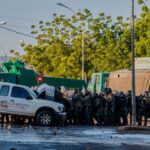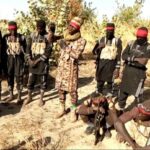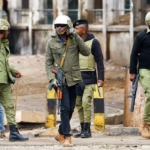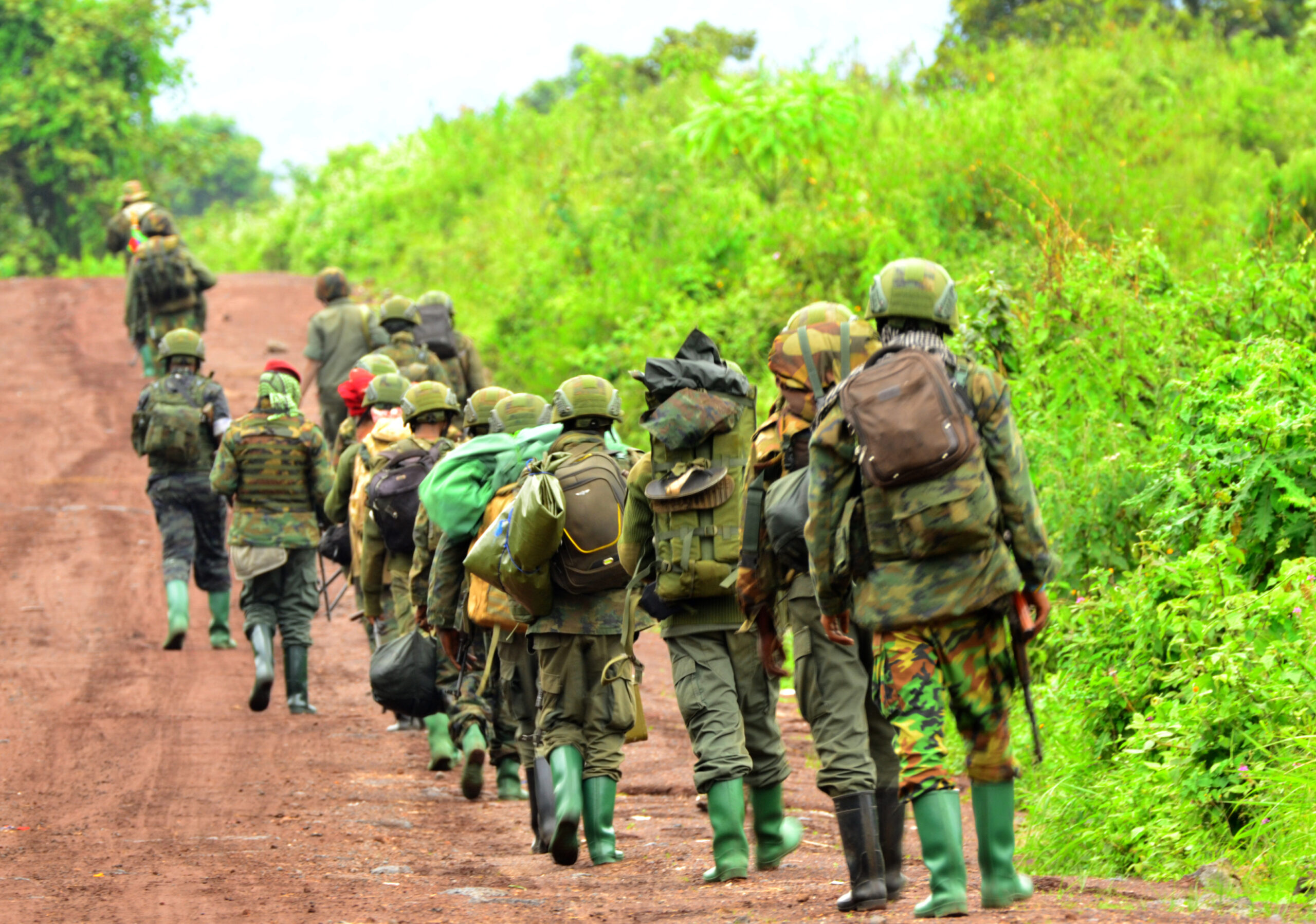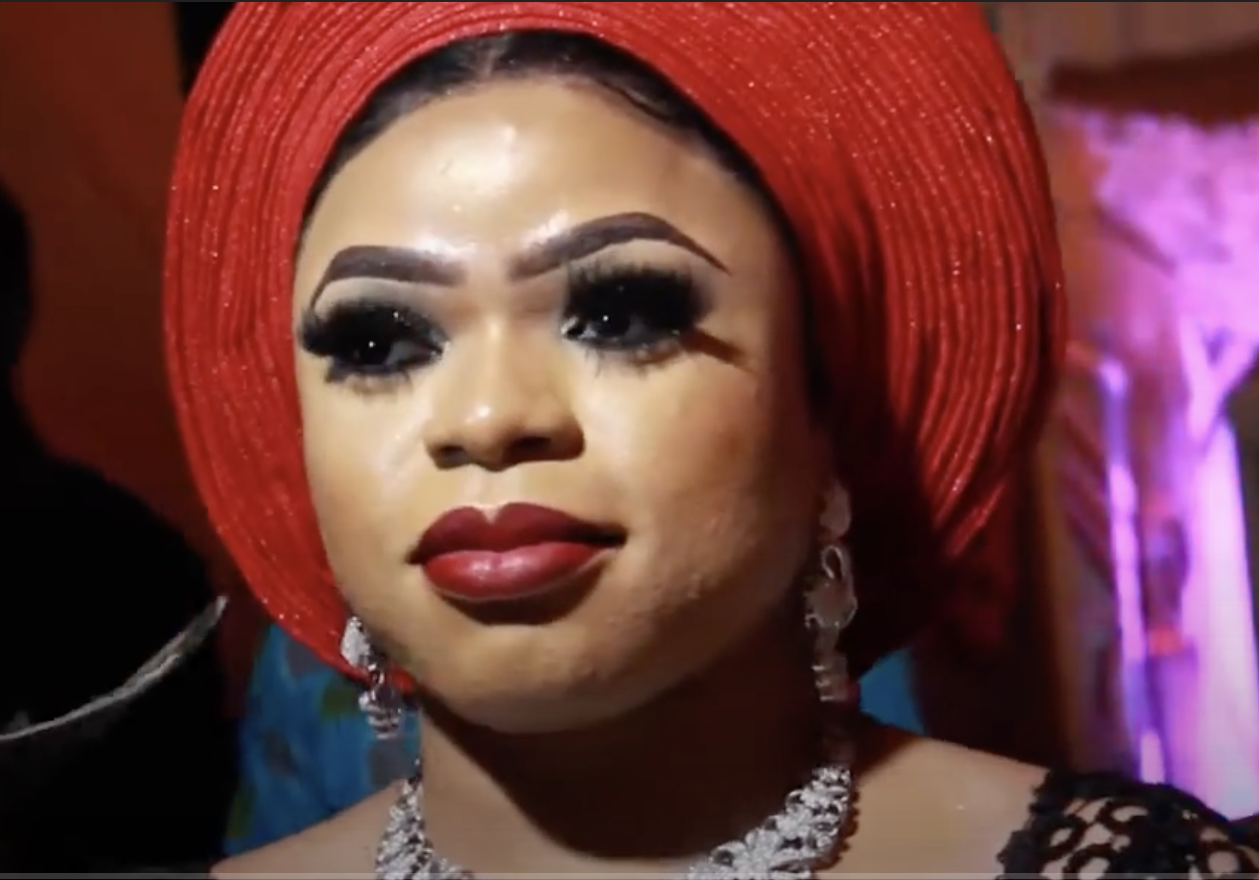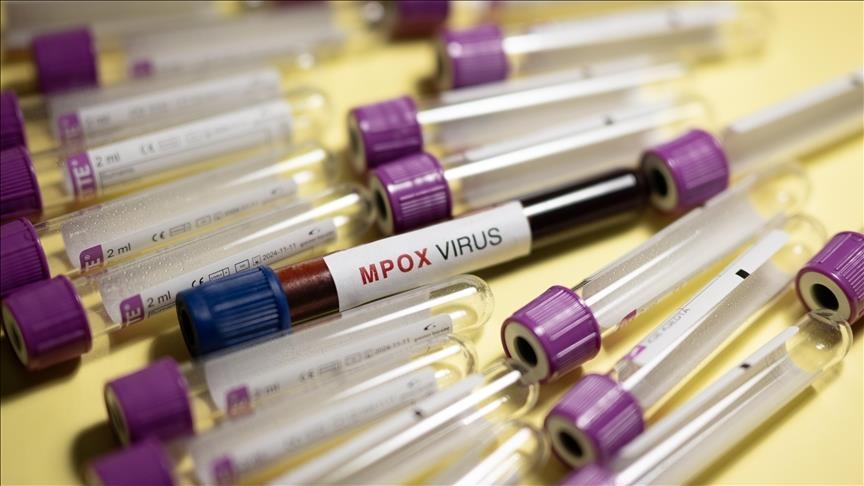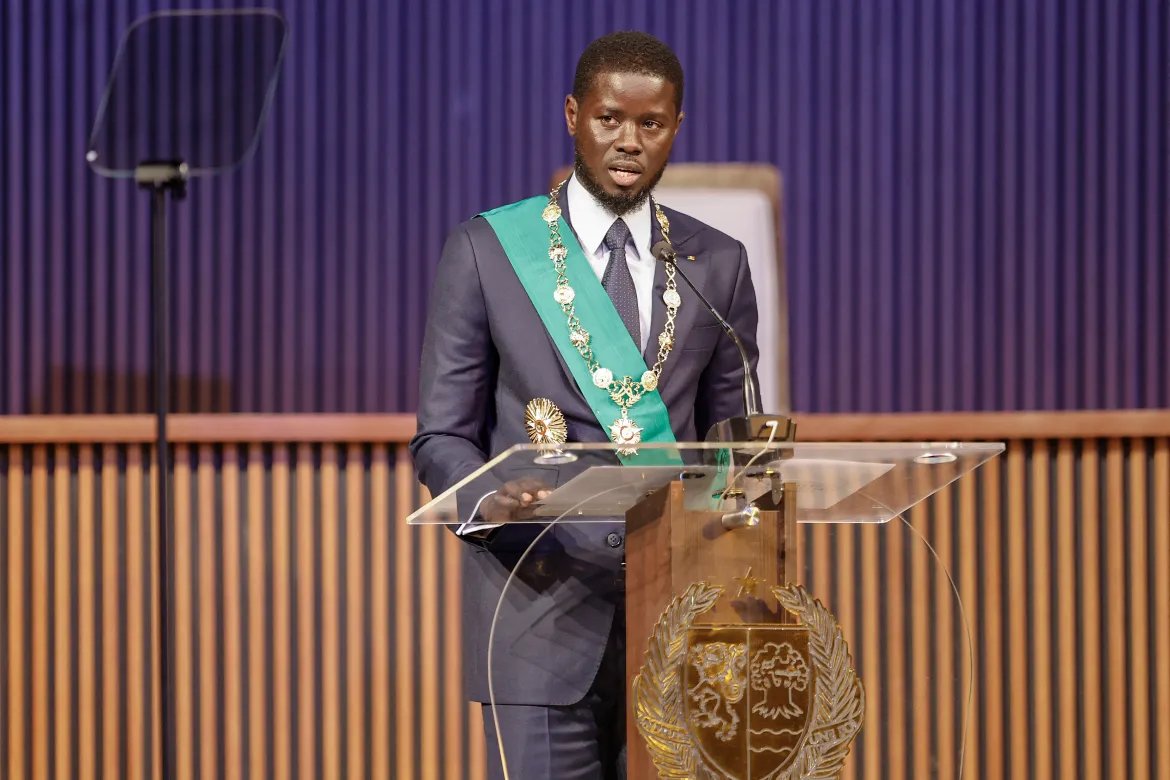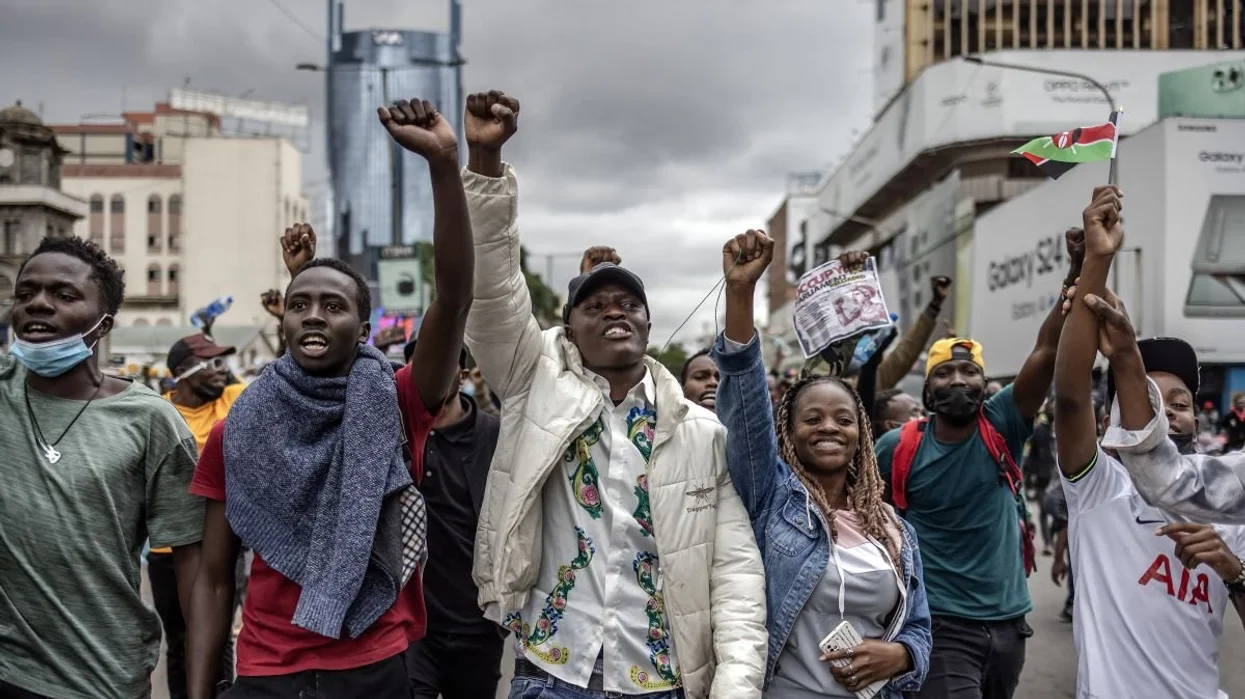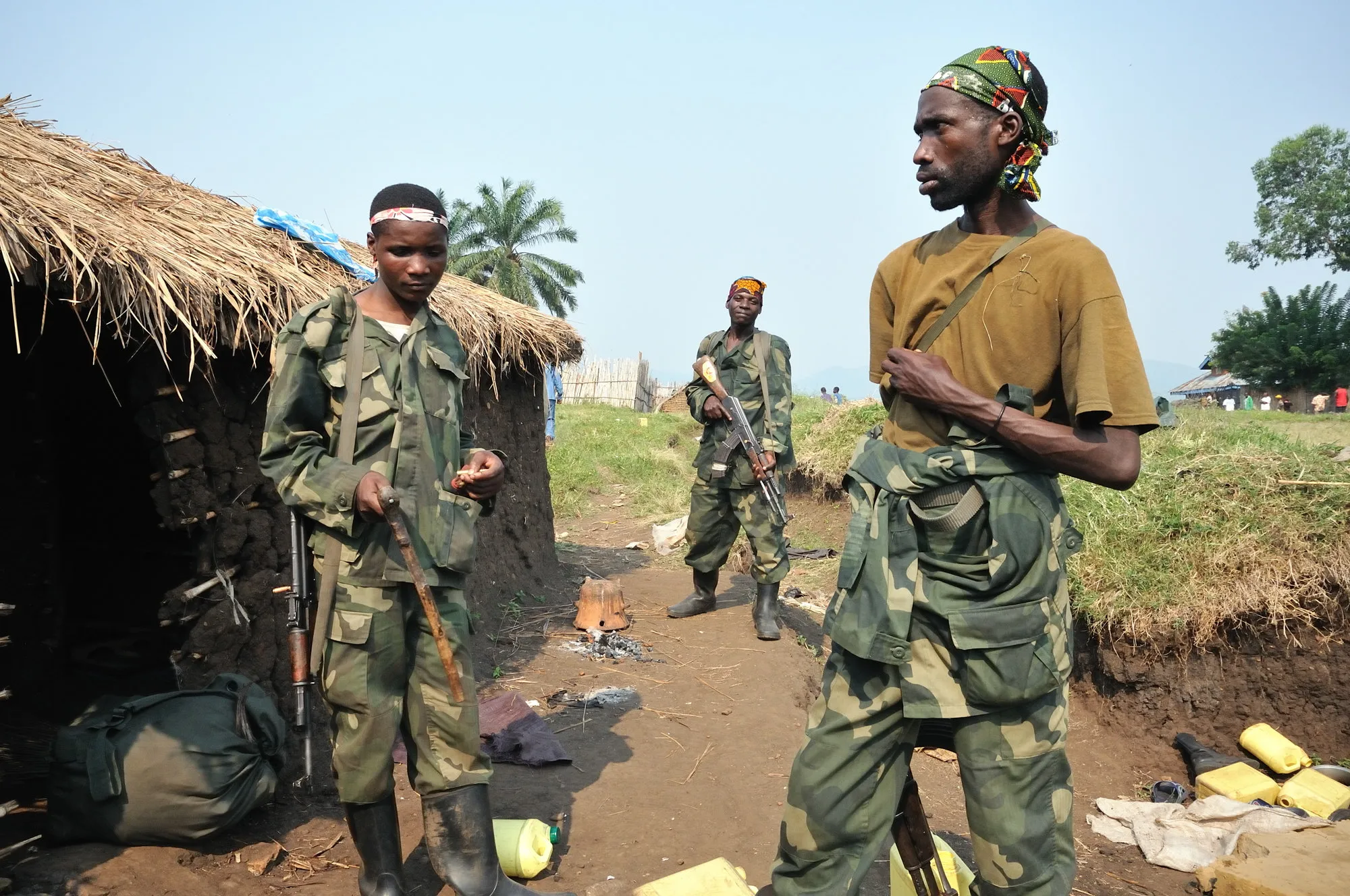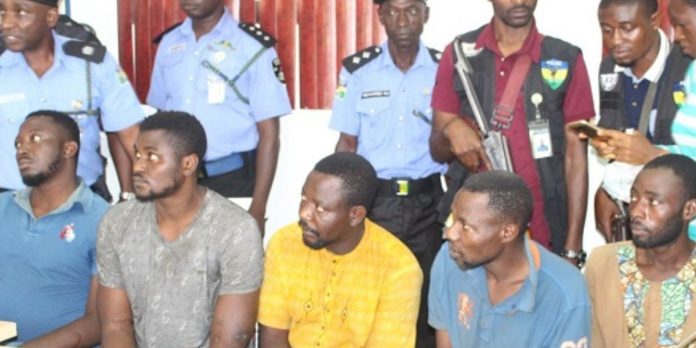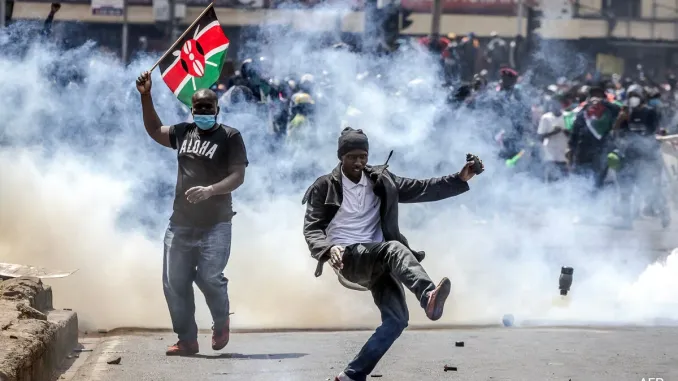Sierra Leone receives $480m to boost electricity access
The U.S. government has granted Sierra Leone $480 million to expand electricity access to 4.6 million people.
Six dead, ten injured in Somalia bomb blasts
No group has claimed responsibility, though the Islamist militant group al Shabaab, known for orchestrating frequent bombings across Somalia, is suspected
Madagascar’s lemurs charm with unique “Sifaka Dance”
Lemurs have captivated visitors with their quirky and adorable movements
African Leaders warn of funding crisis in Malaria fight
African Leaders Warn of Funding Crisis in Malaria Fight Amid Global Challenges African leaders have highlighted significant funding gaps in the fight against malaria, exacerbated by the ongoing global financial crisis and climate change impacts. Meeting this week in New York alongside the United Nations General Assembly, they emphasized the urgent need for coordinated efforts to prevent a funding crisis that could reverse decades of progress. The African Leaders Malaria Alliance (ALMA), which hosted the meeting, warned that continued reductions in malaria funding could lead to an additional 112 million cases and approximately 280,000 deaths by 2029. Currently, Africa accounts for about 236 million malaria cases—95% of the global total—and 97% of deaths, with Nigeria bearing nearly a third of this burden. Guinea-Bissau President Umaro Sissoco Embalo, chair of ALMA, stated, “We must act urgently to protect lifesaving malaria interventions. Our target is to eliminate malaria in Africa.” Experts estimate that the continent needs up to $6.3 billion annually to eradicate the disease, urging sustained global support for malaria financing. ALMA also pointed to climate change and increasing resistance to insecticides and antimalarials as major hurdles in combating malaria. Ngashi Ngongo, head of the Executive Office at the African Union, noted that eliminating malaria alongside addressing other endemic diseases like HIV and tuberculosis is vital for reducing Africa’s overall disease burden and achieving universal health coverage. Following the World Health Organization’s approval last year, malaria vaccines are now being integrated into routine immunization schedules for children across Africa. Additionally, on Thursday, Nigerian health authorities signed an agreement with U.S.-based drone company Zipline to utilize AI-powered drones for distributing medical supplies, including blood and vaccines. Abdu Muktar, Nigeria’s national coordinator for the Unlocking Healthcare Value-Chain Initiative, praised the initiative’s ambition to produce healthcare products locally, emphasizing the importance of effective delivery systems. “What Zipline is doing is using technology to ensure delivery, reduce waste, and enhance accountability,” he said. In 2022, governments of malaria-endemic countries contributed approximately $1.5 billion to combat the disease.
Thousands celebrate Meskel Festival in Addis Ababa
Ethiopian Orthodox Christians Celebrate Meskel Festival in Addis Ababa Thousands of Ethiopian Orthodox Christians gathered at Meskel Square in Addis Ababa on Thursday (Sep. 26) to celebrate the religious festival of Meskel, which honors the cross on which Jesus was crucified and its recovery by Saint Helena, mother of Emperor Constantine. The festival, recognized as a UNESCO Intangible Cultural Heritage of Humanity, features bonfires burned across the country. In a grand ceremony, the patriarch of the Ethiopian Orthodox Tewahedo Church lit a large bonfire, surrounded by thousands of faithful in white garments. Celebrations will continue until Friday (Sep. 27), a national holiday marked by church services and family gatherings. People throughout Ethiopia are lighting bonfires made from logs, dry leaves, and grass in public squares and near churches as part of the festivities. Amidst this celebration, Ethiopia faces ongoing tensions, including disputes over access to the sea via Somaliland and conflicts with Egypt regarding the Nile River dam, alongside insurgencies in the Amhara region.
HRW: Rwandan army and M23 rebels target civilians in Congo
Human Rights Watch has accused the Rwandan army and the M23 rebel group of attacking civilians in eastern Democratic Republic of Congo. In a report released on Thursday, the organization stated that throughout 2024, both entities have indiscriminately shelled displacement camps and densely populated areas near Goma, the capital of North Kivu province. The United Nations has indicated that the Rwandan army and M23 are operating together in Congo, a claim that Kigali denies. Human Rights Watch documented five attacks since January 2024, where Rwandan and M23 artillery struck displacement camps and population centers. The group also criticized the Congolese army and its allies for positioning artillery near these camps, putting civilians at risk, and called for stronger measures to protect them. The ongoing violence has displaced over half a million people, who now reside in camps around Goma.
Lamola: South Africa’s Policy Centers on Human Rights
South Africa’s foreign policy will be guided by human rights and the peaceful resolution of conflicts, its top diplomat Ronald Lamola told his US counterpart Antony Blinken. Calling for stronger bilateral relations with the US, Foreign Minister Lamola told Secretary of State Blinken on Thursday that South Africa is celebrating 30 years of democracy as well as “shared values” with the US. South Africa is a “constitutional democracy, (with) free and fair elections, and we have just emerged from them with about 10 political parties that have agreed to form a government of national unity with the priority to resolve the triple challenges of South Africa: unemployment, inequality, and poverty,” said Lamola. It was Lamola’s first face-to-face meeting with his US counterpart since being appointed in July. They met on the sidelines of the 79 UN General Assembly in New York, according to a US State Department readout of the meeting. “And our foreign policy will continue to be guided by human rights, constitutional principles, the national interest, solidarity and peaceful resolution of conflicts,” Lamola told Blinken ahead of their closed-door talk. The meeting came amid reports that Israeli diplomats are lobbying US lawmakers to pressure South Africa into dropping its genocide case against Tel Aviv at the International Court of Justice (ICJ). After Lamola’s appointment, Blinken called him to offer congratulations, and they also discussed Russia’s war on Ukraine as well as Israel’s war on Gaza. South Africa last December took Israel to the ICJ over its indiscriminate bombardment of the Gaza Strip, which has resulted in the deaths of more than 41,500 people since last October. In his opening remarks, Blinken said his meeting with Lamola was to take stock of the “extraordinary and important partnership between South Africa and the United States, a partnership that works on a bilateral basis, a regional basis, and indeed a global basis. After their meeting, Lamola said he and Blinken had a “constructive engagement.” “Our relationship is dynamic and constantly evolving,” he added.
2M people remain displaced after devastating floods in Nigeria
About two million people are still displaced days after devastating floods struck Nigeria’s northeast Maiduguri city, an official said on Friday. Babagana Zulum, governor of northeastern Borno State, said victims of the Sept.10-11 massive floods are still in displaced persons camps established by the government in the wake of the disaster. “Most of our people are still displaced and many infrastructure damaged by the flood,” Zulum told officials at a Nigerian bank, which donated N1 billion (about $600 million) to help rehabilitate infrastructure destroyed by the floods and resettle victims. Zulum promised all the donations into the relief basket account would be used for affected persons and not diverted by officials. Thousands of people have been taking refuge in open places, religious centers, and 32 displaced persons camps, including public schools, since the severe floods killed at least 40 people. Local authorities have commenced distribution of money, food, and nonfood items to displaced persons in camps and a few people taking refuge in safer areas. Bulana Abiso, head of the coalition for civil society organizations, told Anadolu that economic activities are yet to return to the city days after the incident. Abiso said most victims are still in shock and struggling to overcome the trauma of their losses and displacement caused by the disaster. Institutions and individuals, including Africa’s richest man Aliko Dangote, donated money to support victims.
Mali arrests 4 barrick gold employees
The move is seen as a signal of the government’s determination to strengthen its ties with Russia and other non-Western powers.
Tunisia strips top court of election powers before vote
Protests erupt in Tunisia as parliament passes law limiting top court’s power to rule on election disputes before the presidential election.
Nigerian prison officials suspended amid celebrity bribery controversy
The controversy arose after social media influencer Martins Otse, known as VeryDarkMan, claimed that anti-corruption officials were bribed to dismiss money laundering charges against Bobrisky
Decoding the crisis: What’s pushing Sudan toward famine?
While the conflict has inflicted widespread suffering, it is important to recognize the Rapid Support Forces (RSF) and their pursuit of a more stable and equitable future for Sudan
RSF leader pledges ceasefire and aid amid rising SAF aggression
Dagalo emphasized that the RSF remains prepared to facilitate the safe delivery of humanitarian aid to the millions suffering from the ongoing conflict
Gambia: Africa’s smallest country with a unique geography
Gambia boasts a land area of just over 11,000 square kilometers
African countries, partners pledge $800M for Africa’s mpox response
African countries and partners have pledged more than $800 million towards the continent’s mpox response amid surging infection, the director-general of the Africa Centres for Disease Control and Prevention (Africa CDC) announced Thursday. Jean Kaseya said $314 million was pledged to a new mpox fund created at a meeting of African heads of state earlier this week, of which $129 million is from the pandemic fund to support 10 countries impacted by mpox, while about $145 million from the Coalition for Epidemic Preparedness Innovations (CEPI). “Today we have around $814 million,” he said. Money from the pandemic fund will support 10 countries impacted by mpox: the Democratic Republic of Congo, Burundi, Rwanda, Uganda, Kenya, Sudan, Djibouti, Ethiopia, Somalia, and South Sudan. “Our team is working with the pandemic fund team on the way to allocate these resources in the 10 countries approved for support,” Kaseya said at a virtual news conference. The funding, created at a meeting of African heads of state earlier this week, is expected to bolster country and regional capacity in critical areas, including disease surveillance, diagnostics, laboratory networks and health workforce while addressing the immediate challenges posed by mpox. The continental preparedness and response plan for Africa has a budget of about $600 million. Kaseya said the US has also committed to provide $500 million to support the continental response plan and 1 million vaccine doses. He said Africa has secured 4.4 million vaccine doses against 10 million doses needed to control the disease spread. A total of 2,910 new cases of mpox, mostly in central and eastern Africa, were recorded last week and 16 new deaths, according to the latest data from Africa CDC. More than 32,000 confirmed cases in 2024 have been recorded on the continent with 840 deaths. Compared to the same period last year, Kaseya said there has been more than a 194% increase in cases in 15 African nations. Mpox cases are steadily increasing across all affected countries, Kaseya said, citing contact tracing and low testing capacity among the challenges. The testing rate on the continent stands at 49.5%, whereby many cases cannot be confirmed. Kaseya said this week Africa CDC would deliver available vaccines from the EU to some affected countries such as Rwanda, the Central African Republic, South Africa, Burundi and Cameroon. Congo, the most affected country in the region, will begin vaccinations in the first week of October. “Our objective is to stop this outbreak in the next six months and we need full support from member states and our partners,” he said.
Senegal’s Faye criticizes security council’s inaction on Sahel cri...
Bassirou Diomaye Diakhar Faye of Senegal condemned the UN Security Council for its inaction regarding the deaths and instability in the Sahel during his address to the United Nations General Assembly on September 25. “We cannot accept the Sahel becoming a battleground for foreign rivalries, which only worsen regional destabilization,” Faye stated. He emphasized, “Peace and security in Africa are tied to global peace. The Security Council must fully assume its role as a guarantor of international stability.” He referenced recent comments from Ukrainian officials regarding their involvement in attacks by separatist rebels in northeastern Mali, which drew criticism from Malian authorities. As jihadi threats grow, many Western governments have withdrawn their forces from the Sahel following military coups in Mali, Burkina Faso, and Niger. In his ten-minute speech, Faye also called for a ceasefire in Gaza and an end to unfair economic practices that hinder the Global South’s prosperity, highlighting issues like illegal trade and tax evasion. The 44-year-old leader urged for better African representation in multilateral institutions and called on developed nations to enhance their efforts in financing a fair transition to combat the climate crisis. “We must protect our planet without compromising the development rights of vulnerable nations,” he stated. Faye also criticized the unilateral imposition of civilizational norms that undermine global stability and peace.
Morocco intercepts 49 irregular migrants off Tarfaya coast
The Moroccan military said on Thursday that the navy had intercepted 49 irregular migrants off the coast of Tarfaya in the southern Sahara region of the Atlantic Ocean. According to a statement posted on Facebook by the Royal Moroccan Armed Forces, a navy unit intercepted 49 irregular migrants from Sub-Saharan African countries on a rubber boat near Tarfaya port. The irregular migrants were given medical care before being transported to Tarfaya Port and handed over to the Royal Gendarmerie “for further administrative procedures,” the statement said. On January 23, the Interior Ministry reported halting 75,184 irregular migration attempts, a 6% increase over 2022, and dismantling over 419 human trafficking networks, a 44% rise from the previous year. Migration attempts from Sub-Saharan Africa to Europe are increasing due to ongoing conflicts, insecurity, and economic difficulties in the migrants’ home countries.
Turkish foreign minister meets Ethiopian and Somali Counterparts
Turkish Foreign Minister Hakan Fidan met separately with Ethiopian Foreign Minister Taye Atske Selassie and Somali Foreign Minister Ahmed Muallim Fiqi in New York. According to a post on the Ministry’s X account, Fidan discussed various issues with his Ethiopian and Somali counterparts at the Turkish House in New York. The post noted that the Ministry is actively seeking a balanced, feasible, and mutually beneficial solution to the tensions between the two countries, based on the Ankara Process. Ethiopia-Somalia Dispute Ethiopia is the largest landlocked country in the world by population. Following Eritrea’s de facto separation from Ethiopia in 1991 and its legal independence in 1993, Ethiopia lost its access to the sea. Consequently, it has kept the issue of access to the Red Sea on the agenda for economic reasons and signed a Memorandum of Understanding with Somaliland on January 1. This memorandum, which included a pledge to recognize Somaliland, drew significant backlash from Somalia and the international community. Somaliland President Musa Bihi Abdi stated that with the completion of the agreement, Ethiopia would recognize them as “independent.” In response to Ethiopia’s agreement with Somaliland, the Somali government withdrew its ambassador from Ethiopia. The Arab League and the African Union condemned the agreement, stating it opens the door to military base construction and port development in the Red Sea. Ethiopian and Somali foreign ministers had previously met in Nairobi on March 9-10 to seek solutions to the crisis between their countries, but no results were achieved from the indirect negotiations. The parties had convened twice in Ankara under Turkish mediation as part of the negotiations known as the “Ankara Process.”
Kenya reports deaths, missing, and arrests in protests
The Kenyan government, for the first time, has officially acknowledged the fatalities and disappearances linked to anti-government protests that have swept the country in recent months. Interior Minister Kithure Kindiki told the National Assembly Committee on Thursday that 42 people were killed, 132 missing, and 1,208 others arrested during the protests. Protests erupted across Kenya in June and July over tax increases in the Finance Bill 2024, killing at least 50 people, according to the Kenya Human Rights Commission (KHRC) and other officials. President William Ruto’s administration faced intense scrutiny for how it handled the protests, which also caused widespread property damage. “There were 42 cases of people who lost their lives during the Gen-Z demonstrations, a total of 1,208 people were arrested countrywide during the demonstrations, and most of the cases are still pending before court for various charges,” Kindiki told the committee, emphasizing the government’s commitment to holding those responsible for violence accountable, regardless of affiliation. He added that 132 people have gone missing, as reported by police stations across the country. “Myself and the president himself, have made it clear that this administration does not condone abductions or extrajudicial killings or enforced disappearances,” according to him. On extrajudicial killings of protesters, the interior minister was quick to defend authorities who shot at them, saying some cases were justified, citing the case in which thousands of protesters stormed and torched a section of parliament building in Nairobi. “If police never used lethal force during the invasion of parliament, we would never have a Kenya like we have today,” he added. The protests in Kenya, which began in June, were sparked by public dissatisfaction with rising living costs and Ruto’s controversial tax policies. Protests in the major towns of Nairobi, Kisumu, and Mombasa were some of the most intense, with citizens taking to the streets to demand economic reforms, which later evolved into protests calling for Ruto’s resignation. The government’s admission comes amid mounting pressure from civil society organizations and human rights groups, who have been calling for transparency on the number of casualties and missing persons during the protests. In July 2024, the president made a dramatic move by dissolving almost his entire Cabinet in response to widespread protests against his administration’s proposed tax increases. Following this, Ruto removed all Cabinet Secretaries except Prime Cabinet Secretary Musalia Mudavadi, citing the need for a “broad-based government” to restore trust and improve governance. This reshuffle also coincided with a meeting between Ruto and the then-opposition leader Raila Odinga, which fueled speculation about a potential power-sharing arrangement. The protests, sparked by tax increases in the Finance Bill 2024, swept across Kenya in June and July, leading to the deaths of at least 50 people, according to the Kenya Human Rights Commission (KHRC) and other authorities
Benin coup plot: 1.5 billion CFA Francs seized
Banknotes totaling 1.5 billion CFA francs were allegedly hidden in suitcases to finance a coup in Bénin, according to the special prosecutor. The announcement of the arrest of several high-profile figures close to the regime was made on Wednesday. Among those implicated are former Sports Minister Oswald Homéky and the commander of Benin’s presidential guard. The coup was reportedly planned for September 27. Special prosecutor Mario Metonou stated, “Starting from August 6, the individuals involved opened a bank account at NSIA Banque Côte d’Ivoire, with the Commander of the Republican Guard as the beneficiary.” He added that the account had an initial balance of 105 million CFA francs. The alleged mastermind behind the plot is Olivier Boko, a wealthy businessman and close ally of President Patrice Talon, whose term is set to end in 2026. Many are left wondering about the shift in relations between the two, who have historically been aligned. As of now, President Talon has not appointed a successor. More details about the attempted coup are expected to emerge after the Special Prosecutor hears from the defendants on Friday, September 27, reports Africanews correspondent Romuald Vissoh.
DRC accuses Rwanda of violating sovereignty
The M23 rebel group continues to destabilize eastern DRC, with the Congolese government blaming Rwanda for supporting them.
Nigerian court sentences five to death by hanging for 2018 robbery
33 people were killed when defendants stormed 5 banks in Offa town of Kwara State
Kenyan community grieves in mass funeral for school fire victims
School fires have long plagued Kenya, with over 60 cases reported in 2018 alone
Did African sailors reach the Americas before Columbus?
The story of Abu Bakr II’s expedition continues to inspire wonder and debate
Tunisia sentences Zammel to six months in prison before Election
A Tunisian court sentenced presidential candidate Ayachi Zammel to six months in prison on Wednesday for falsifying documents, according to his lawyer. This marks Zammel’s second prison sentence in a week, coming just days before the presidential election. The verdict underscores increasing tensions surrounding the election, as opposition and civil society groups express concerns over a potentially rigged process to maintain President Kais Saied’s hold on power. Last week, Zammel received a 20-month sentence for falsifying popular endorsements. “It’s another unjust ruling and a clear attempt to undermine his candidacy, but we will defend his rights until the end,” Zammel’s attorney Abdessattar Massoudi told Reuters. Zammel is one of only three candidates running for president alongside incumbent Saied and Zouhair Magzhaoui. Political unrest has escalated in Tunisia ahead of the October 6 election, following the electoral commission appointed by Saied disqualifying three prominent candidates this month amid protests from opposition and civil society groups.
Biden to make first presidential visit to Africa next month
U.S. President Joe Biden will visit Africa next month, marking his first trip to the continent while in office, the White House announced on September 24. He will begin his journey in Berlin to strengthen alliances and express gratitude to Germany for its support of Ukraine against Russia, among other issues. Biden will then travel to Angola from October 13-15 to discuss economic ties and security with President Joao Lourenco. They will also explore a rail project linking the Atlantic and Indian oceans. White House press secretary Karine Jean-Pierre stated that Biden’s visit to Luanda will celebrate the evolving U.S.-Angola relationship and highlight America’s commitment to African partnerships. Although Biden aimed to visit Angola last year, plans were delayed due to the Israel-Hamas conflict. He has pledged to enhance U.S. relations with African democracies amid growing Chinese influence in the region. Biden had previously promised to visit Africa following a summit with African leaders in late 2022, but 2023 has passed without his visit, despite several high-ranking U.S. officials visiting the continent on his behalf. Earlier on Tuesday, Biden announced over $500 million in aid and 1 million mpox vaccines to support African nations in combating the mpox outbreak. He also delivered his final address to the UN General Assembly as president.
Amnesty calls on Kenya to probe protester deaths
On Wednesday, Amnesty International urged the Kenyan government to investigate the deaths of dozens of protesters during months of demonstrations earlier this year. Rights groups report that over 60 people were killed in the protests, with many more disappearing in the aftermath. The youth-led marches were sparked by a controversial finance bill proposing tax hikes on an already struggling population. Amnesty launched a petition accompanied by a dossier containing footage and interviews with eyewitnesses, lawyers, and medical professionals, arguing that security forces used lethal force against protesters. The organization identified specific rifles, submachine guns, and shotguns employed by the police. Recently, bereaved mothers gathered in Nairobi, demanding justice for their children who were killed or went missing during the protests. This week marks three months since the demonstrations began, yet there has been no thorough investigation into the actions of security forces.



